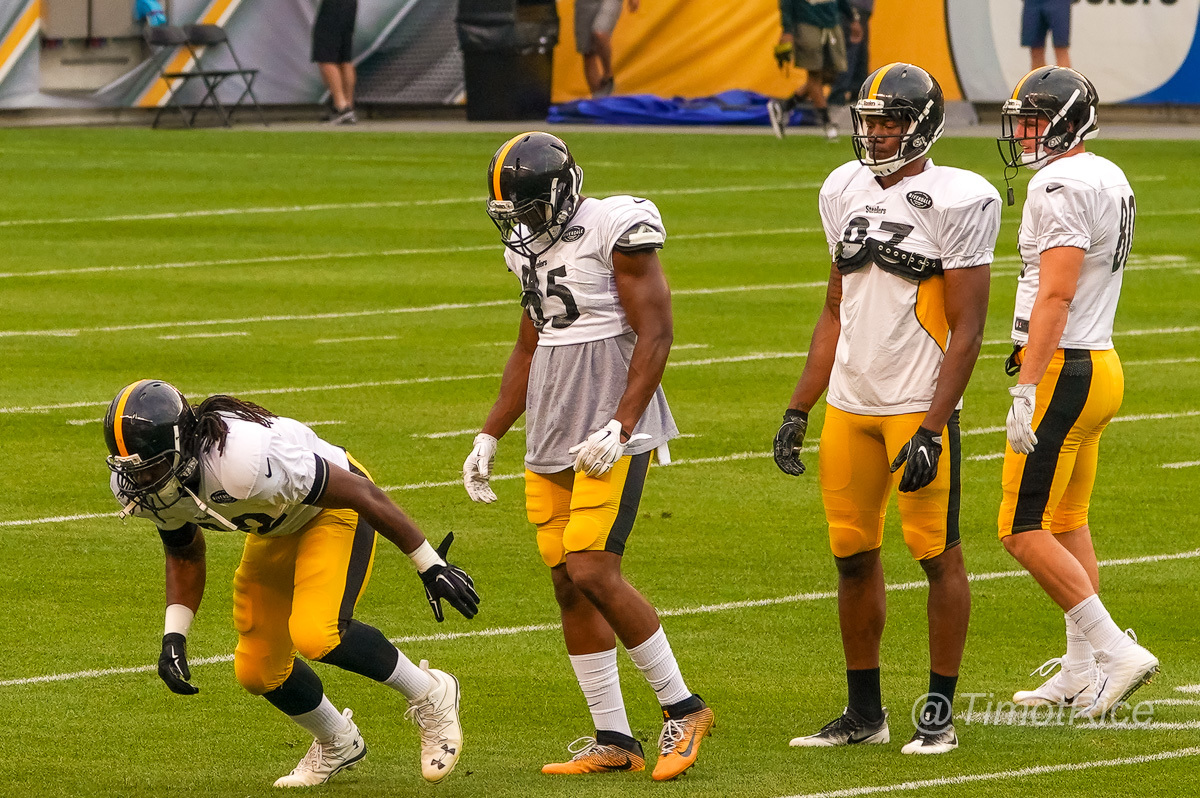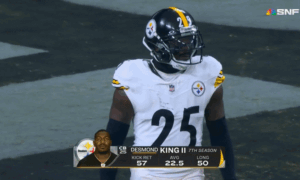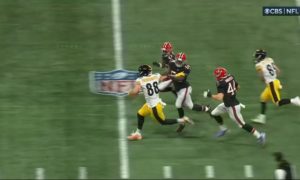Pittsburgh Steelers Head Coach Mike Tomlin did not beat around the bush when he talked about the team’s impetus in trading for 49ers tight end Vance McDonald yesterday. He called out his tight end group and essentially said that they had not performed to the expectations laid out for them.
So stark was their underwhelming performance that it drove them to feel the need that they had to make a significant late addition to the group because of what they had shown to be capable of during training camp and the preseason.
I have yet to encounter a first-hand observer of training camp who was high on what either Jesse James or Xavier Grimble did in Latrobe. Even Dale Lolley notes that “David Johnson, who is the team’s best blocking tight end, was the most steady of the group, which wasn’t necessarily a good sign”.
So take this trade for what it is, which is an indictment of their tight end group as a whole. This was not simply a golden opportunity to add a premium talent to the roster—which should be obvious given the fact that the 49ers have been shopping McDonald since the draft.
It is because of what the coaches saw in Latrobe specifically and in the stadiums so far that they pulled the trigger now. The tight end group was given the opportunity to prove that they were up to the task, and they were not up for the challenge.
This just so happens to be something that I have been writing about for the past few days. Yesterday I highlighted some of the inconsistencies that we are continuing to see from their top tight end, James, entering his third season. The day before I more boldly suggested that the Steelers do not approach the group as though they actually have a starter.
In that latter piece I argued that the problem that the team has is not that they don’t have any decent tight ends, but rather that they only have a bunch of complementary, number two tight ends, with none of them rising to the level of a legitimate full-time starter.
Any of James, Johnson, or Grimble could potentially capably fill the role of a number two tight end, I think—certainly no worse than the number three role. But none of them belong in the starter’s seat. McDonald can be that tight end.
The former tight end is by no means a perfect prospect. As has been amply discussed by the detractors of the trade, he has had some drop issues, though that has been an improving statistic. He is a capable but not spectacular blocker.
But he is easily the most well-rounded, talented, and versatile tight end that is now in the room, and assuming that he gets up to speed with relative quickness, his presence has the potential to make a big difference, and even—dare I say it—turn the tight end position into a strength. McDonald can be the rising tide that lifts all boats.








